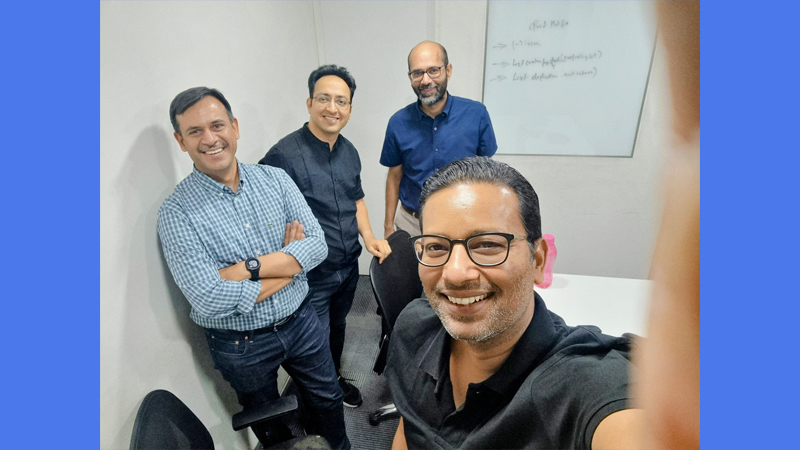In today’s hyper-connected world, digital distractions are everywhere, making it increasingly difficult to maintain focus and get meaningful work done. From addictive social media apps to endless notifications, the average person’s attention span is constantly challenged. Enter app blockers: powerful tools designed to help you regain control over your digital life by limiting or blocking access to distracting apps and websites. As technology evolves, so do these blockers, becoming smarter, more customizable, and integral to maintaining productivity in 2025.
This comprehensive guide covers the best app blockers available in 2025, detailing their features, benefits, and how they can be tailored to different needs. Whether you’re a student striving for distraction-free study hours, a professional needing to concentrate on work, or a parent limiting screen time for your kids, this guide has you covered.
Table of Contents
Top App Blockers of 2025: Features, Pros & Cons
1. Stay Focused
Stay Focused stands out as a versatile app blocker and screen time tracker designed to give users robust control over their digital habits.
Platform: Android
Key Features:
Blocks apps, websites, and keywords to eliminate distractions.
Strict mode to prevent bypassing restrictions.
Customizable blocking schedules for different times (work, study, family).
Screen time tracker and app usage statistics.
Notifications blocker for uninterrupted focus.
Pros: Highly customizable, strong strict mode enforcement, digital wellbeing features, ideal for both students and professionals seeking self-control.
Cons: Primarily Android-focused, requires device administrator permissions.
Best for: Android users wanting an all-in-one solution for blocking apps and websites with detailed usage insights.
2. Freedom
Freedom is a cross-platform app blocker acclaimed for blocking distractions on all devices simultaneously.
Platform: Windows, macOS, iOS, Android, Chrome
Key Features:
Blocks apps and websites across all devices with one session.
Multiple blocklists and lockdown mode.
Optional ambient focus sounds.
Chrome extensions like Pause, Limit, Insight, and Focus for fine control.
Pros: Multi-device syncing, wide platform support, strong lockdown features, and additional focus tools.
Cons: No free full version (only a trial), setup complexity for new users.
Best for: Users requiring comprehensive focus management across multiple devices.
3. Cold Turkey Blocker
Cold Turkey Blocker is known for its rigid system-wide blocking and sharp focus on preventing self-sabotage.
Platform: Windows, macOS
Key Features:
Blocks websites and apps with scheduled timers.
Frozen Turkey mode fully locks out your computer for extreme focus.
Blocks system features like time settings and task manager during blocking.
Pros: Customizable, difficult to bypass, no subscription fees (one-time purchase).
Cons: No support for mobile devices, somewhat complex setup.
Best for: Users needing hardcore focus tools on desktop without mobile requirements.
4. AppBlock
AppBlock is a practical website and app blocker, quick to set up and highly customizable.
Platform: Android, iOS, Chrome (browser extension)
Key Features:
Blocks websites based on URLs and keywords.
Schedules for blocking times/days.
Timer feature for temporary blocking.
Pros: Easy setup, flexible blocking schedules, cross-device availability.
Cons: Browser extension can be bypassed by switching browsers, some features require premium subscription.
Best for: Users wanting easy-to-use blocking on mobile and Chrome browser.
5. RescueTime
RescueTime is more than an app blocker—it primarily tracks app and website usage to help users understand their habits and improve productivity.
Platform: Windows, macOS, Android, iOS
Key Features:
Detailed activity reports.
FocusTime feature to block distracting apps during set periods.
Goal setting and weekly summaries.
Pros: Combines tracking and blocking, clear analytics, helps build better habits over time.
Cons: Some users find setup and learning curve steeper, premium version needed for full functionality.
Best for: Users interested in self-awareness around digital habits combined with focus tools.
6. FocusMe
Platforms: Windows, macOS, Android
Key Feature: Script-level blocking — great for power users. Blocks in patterns.
Best For: Freelancers with complex work schedules.
7. LeechBlock NG
Platform: Firefox, Chrome-based browsers
Best For: Free browser distraction blocking
Feature: Limit site visits per day (e.g., 5 mins on Twitter).
8. Forest
Platform: iOS, Android
Feature: Plant a virtual tree for every focus block — gamified productivity.
9. FamiSafe (For Parents)
Platforms: Android, iOS, Windows, macOS
Feature: Geofencing + app blocking for kids.
10. Serene
Platform: macOS
Feature: Combines daily goals with app blocking and music for flow.
Step-by-Step Guide to Using an App Blocker Effectively
Identify Distractions — Track usage for 48 hours using tools like RescueTime.
Set Goals — Example: “No social media until 6 PM”
Choose the Right Blocker — Cross-device (Freedom), Desktop lockdown (Cold Turkey), Gamified (Forest).
Enable Strict Mode — Prevent mid-session app disabling.
Combine Tools — Use both a blocker (Cold Turkey) + tracker (RescueTime) for maximum effect.
Pro Tips from Productivity Experts (2025)
Time-block your day to combine blocker time with deep work slots.
Leave your phone in another room during focus sessions.
Review weekly reports to adjust blockers dynamically.
Create focus rituals — same playlist, same workspace setup.
How to Use App Blockers Effectively
Using app blockers effectively requires a strategic approach to ensure they truly enhance your focus and productivity rather than just being another digital tool. Here’s a practical guide on how to use app blockers effectively in 2025:
1. Identify Your Main Distractions
Start by understanding which apps or websites consume most of your time and interrupt your focus. Tools like RescueTime or built-in digital wellbeing features can track your usage for a couple of days. Knowing your biggest distractions helps you target the right apps to block.
2. Set Clear and Realistic Goals
Define specific goals for your focus sessions. For example, decide on blocks like “No social media from 9 AM to 12 PM” or “Limit gaming to 30 minutes daily.” Clear goals make it easier to choose appropriate blocking schedules and stick to them.
3. Choose the Right App Blocker for Your Needs
Pick an app blocker that fits your lifestyle:
Use Freedom or Stay Focused for multi-device syncing.
Use Cold Turkey Blocker for strict, unbreakable desktop blocking.
Use AppBlock or LeechBlock NG for quick, flexible website and app blocking.
Use Forest if you want a gamified focus motivation.
4. Configure Strict or Lockdown Modes
Leverage features like “strict mode” or “locked mode” which prevent you from disabling the blocker mid-session. This creates commitment and reduces the chance of giving in to distractions.
5. Customize Blocking Schedules and Keywords
Set up blocking rules according to your daily routine—work hours, study time, family time. Use keyword blocking to prevent accidental distractions from search results or new apps that resemble your usual distractions.
6. Combine Blocking with Usage Tracking and Self-Monitoring
Pair app blockers with usage tracking apps like RescueTime to get insights on your progress. Monitoring helps you see how blocking affects your productivity and motivates you to adjust your habits accordingly.
7. Reduce Other Sources of Distraction
Turn off non-essential notifications and consider physical environment changes—such as leaving your phone in another room during deep work sessions—to complement app blocking.
8. Involve Accountability Partners
Share your blocking goals and progress with friends, colleagues, or family who can help keep you accountable and encourage you to stay on track.
9. Regularly Review and Adjust Your Setup
Periodically review your blocking patterns and productivity reports to refine schedules or unblock certain apps if necessary. Adapt to changes in your work or study demands.
10. Create Focus Rituals
Pair app blocking with rituals like playing the same focus playlist or working in the same spot. These rituals condition your brain to enter a productive state more easily.
Who Should Use Which App Blocker?
| User Type | Recommended App Blocker(s) | Why? |
|---|---|---|
| Students | Stay Focused, Freedom | Custom schedules, block distractions during study hours |
| Professionals | Freedom, Cold Turkey Blocker | Cross-device support, rigid blocking on systems |
| Parents | Famisafe (parental control-focused*) | Monitor and limit children’s screen time and app usage |
| Casual Users | AppBlock, RescueTime | Balanced ease of use with blocking and tracking features |
*Note: Famisafe was mentioned as an ideal parental control blocker but was beyond the central scope of this guide.
The Psychological Power of Blocking Apps
App blockers do more than just reduce distractions—they help rewire your brain. Every time you resist opening TikTok or Instagram, you’re strengthening your prefrontal cortex, the brain’s decision-making center. Over time, this builds discipline, willpower, and long-term focus.
They also reduce dopamine addiction caused by instant gratification, helping you stay calmer, think more clearly, and engage more deeply with important tasks.
App Blocking for Digital Wellness and Mental Health
App blocking has emerged as a vital tool for digital wellness and mental health in 2025, helping individuals manage their relationship with technology in a healthier, more intentional way. Excessive screen time and constant digital distractions can lead to stress, anxiety, reduced focus, fatigue, and diminished overall well-being. App blockers offer practical means to create boundaries that promote mindfulness, relaxation, and balance in an increasingly connected world.
Here’s how app blocking supports digital wellness and mental health:
1. Reduces Digital Overwhelm:
Constant notifications and endless scrolling drain mental energy and scatter concentration. By blocking distracting apps and websites, users regain control over their time and attention, allowing for more meaningful offline moments and deep focus.
2. Encourages Healthier Screen Time Habits:
Features like customizable schedules, strict modes that prevent bypassing, and screen time awareness tools help users build disciplined and balanced digital routines. Many app blockers enable tracking usage patterns for self-monitoring and gradual behavior change.
3. Improves Mental Health and Well-Being:
Scientific research shows that blocking mobile internet on smartphones for even a short period can significantly reduce smartphone use and lead to improvements in mental health outcomes such as anxiety and depression symptoms, increase subjective well-being including life satisfaction and positive feelings, and enhance sustained attention comparable to the cognitive performance of someone a decade younger. These benefits arise from spending more time socializing in person, exercising, and engaging with nature when offline.
4. Supports Mindfulness and Stress Reduction:
By preventing compulsive checking and digital distractions, app blockers create mental space for relaxation and mindfulness practices, reducing anxiety associated with overstimulation.
5. Boosts Productivity and Focus:
App blocking facilitates extended periods of concentration through features like lockdown modes and cross-device syncing. This helps users accomplish tasks without interruption, reducing the cognitive cost of task-switching.
6. Offers Customization for Individual Needs:
Whether you are a student, professional, parent, or casual user, app blockers provide tailored options like strict enforced breaks, keyword blocking, or gamified motivation to empower healthier digital habits.
In 2025, leading digital wellness apps such as AppBlock demonstrate how effective blocking contributes to well-being by helping users reclaim up to three hours daily by minimizing distractions and encouraging screen-free schedules, especially during mornings, evenings, or work sessions. This supports mental clarity and life balance while offering insights into app usage patterns for continued self-improvement.
Practical Tips to Maximize Focus With App Blockers
Use the strict mode or lockdown feature to prevent circumventing the blocking settings.
Customize blocking schedules aligned with your daily routines—work hours, study sessions, family time.
Combine blockers with usage trackers like RescueTime for feedback-driven productivity improvements.
Turn off non-essential notifications to reduce distractions beyond app blocking.
Involve accountability partners by sharing your focus goals and progress.
Conclusion – Take Control of Your Time Today
In a world where our attention is constantly being pulled in countless directions, regaining control over your time isn’t just a productivity hack — it’s an act of self-care and empowerment. App blockers are not about restricting your freedom; they’re about liberating you from the endless pull of digital distractions, allowing you to refocus on what matters most — your goals, your relationships, your mental health, and your personal growth.
By setting healthy boundaries with technology, you give yourself the gift of uninterrupted focus, reduced stress, and greater mental clarity. Whether you’re a student aiming for better study sessions, a professional working on deep projects, a parent setting screen-time limits for your children, or someone simply seeking more intentional living, there’s an app blocker tailored to your needs.
The tools are available, the methods are proven — but the choice to reclaim your time starts with you. Begin small: identify your major distractions, choose a suitable app blocker, set clear boundaries, and commit to honoring them. Over time, these small changes compound into transformative habits that reshape how you work, relax, and connect.
Remember — time is your most valuable resource. Once it’s spent, you can’t get it back.
So start today: take control, stay focused, and design a life where you control your devices, not the other way around.
FAQ About App Blockers in 2025
Q1: Are app blockers effective for everyone?
A1: Yes, but their effectiveness depends on your commitment to using strict settings and digital discipline. Combining blockers with mindful usage habits works best.
Q2: Can I block apps on multiple devices?
A2: Yes, some blockers like Freedom offer multi-device syncing to block distractions across your phone, tablet, and computer simultaneously.
Q3: Are there free app blockers that work well?
A3: Yes, options like LeechBlock (browser extension) are free but less comprehensive. Many robust blockers come with free trials and premium tiers.
Q4: Can app blockers help with screen addiction?
A4: Yes, by limiting access to addictive apps and tracking usage, they help establish healthier screen time habits.
Q5: Are app blockers safe regarding privacy?
A5: Most reputable blockers focus on blocking functions and usage data lightly. Check each app’s privacy policy to ensure your data is secure and not sold to third parties.












